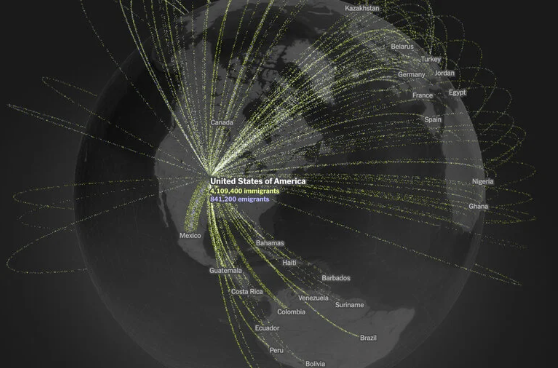Report by the UN Sustainable Development Solutions Network (SDSN): “Ten years after the adoption of the Sustainable Development Goals (SDGs), progress remains alarmingly off-track, with less than 20% of targets projected to be achieved by 2030…The SDR includes the SDG Index and Dashboards, which rank all UN Member States on their performance across the 17 Goals, and this year’s report features a new Index (SDGi), which focuses on 17 headline indicators to track overall SDG progress over time…This year’s SDR highlights five key findings:
The Global Financial Architecture (GFA) must be urgently reformed to finance global public goods and achieve sustainable development. Roughly half the world’s population resides in countries that cannot adequately invest in sustainable development due to unsustainable debt burdens and limited access to affordable, long-term capital. Sustainable development is a high-return investment, yet the GFA continues to direct capital toward high-income countries instead of EMDEs, which offer stronger growth prospects and higher returns. Global public goods also remain significantly underfinanced. The upcoming Ff4D offers a critical opportunity for UN Member States to reform this system and ensure that international financing flows at scale to EMDEs to achieve sustainable development…
At the global level, SDG progress has stalled; none of the 17 Global Goals are on track, and only 17% of the SDG targets are on track to be achieved by 2030. Conflicts, structural vulnerabilities, and limited fiscal space continue to hinder progress, especially in emerging and developing economies (EMDEs). The five targets showing significant reversal in progress since 2015 include: obesity rate (SDG 2), press freedom (SDG 16), sustainable nitrogen management (SDG 2), the red list index (SDG 15), and the corruption perception index (SDG 16). Conversely, many countries have made notable progress in expanding access to basic services and infrastructure, including: mobile broadband use (SDG 9), access to electricity (SDG 7), internet use (SDG 9), under-5 mortality rate (SDG 3), and neonatal mortality (SDG 3). However, future progress on many of these indicators, including health-related outcomes, is threatened by global tensions and the decline in international development finance.
Barbados leads again in UN-based multilateralism commitment, while the U.S. ranks last. The SDR 2025’s Index of countries’ support to UN-based multilateralism (UN-Mi) ranks countries based on their support for and engagement with the UN system. The top three countries most committed to UN multilateralism are: Barbados (#1), Jamaica (#2), and Trinidad and Tobago (#3). Among G20 nations, Brazil (#25) ranks highest, while Chile (#7) leads among OECD countries. In contrast, the U.S., which recently withdrew from the Paris Climate Agreement and the World Health Organization (WHO) and formally declared its opposition to the SDGs and the 2030 Agenda, ranks last (#193) for the second year in a row…(More)”

